It’s remarkable how the Western Governments (and the mainstream media) are sleeping in silence about Iran’s political crisis and Ahmadinejad’s dictatorship, since the elections in Iran (summer 2009) and the mass protests of the Iranian people as result of the fraud during the vote counting. It’s even more striking that the Western Governments are still sleeping in silence during the recent protests on Iran’s Student Day and the continuing violent oppression of the democratic movement in Iran. The Western Governments did not back up the Iranian people in their desire for more freedom and justice during the summer protests and are still not doing so.
Considering the ongoing unwillingness from Iran’s regime to cooperate with the IAEA and the slowing down tactics towards openness about their nuclear program, it’s no wonder that the Western Governments will wake up in a horror scenario if they continue to refuse to tackle Iran’s dictator Ahmadinejad and his nuclear aspirations.
In contrast, the Western Governments and the mainstream media are the first to debate Israel and the Palestinian crisis, where Israel is of course the bad guy. This also was the case with Switzerland and it’s ban on minnarets. What does this say about the political and media elite these days and their so-called political correctness?
—
The following is an update on the Iran’s Student Protest Day from the Intelligence and Terrorism Information Center.
Iran marks student day as political crisis continues
On December 7, Iran marked the annual Student Day amid heavy security presence around the universities. On that day in 1953, three students from Tehran University were killed in a protest rally held during the visit of then US Vice President Richard Nixon against the cooperation between the Shah’s regime and the US administration. In recent years, the Student Day events have become the scene of violent confrontations between protesting students and security forces.
Prior to Student Day, government supporters called upon the students to take advantage of the demonstrations to express anti-American and anti-imperialist views. In contrast, the reformist opposition called to use Student Day (similarly to Qods Day, marked in September, and the anniversary of the US embassy takeover, marked last month) to show the strength of the opposition, which has been continuously protesting since the presidential election.
In the weeks leading up to Student Day, dozens of student activists were either detained or summoned to questioning by the security forces. In addition, senior security forces officials warned that force would be used against those who would disturb public order during the day’s events. According to various reports, on the eve of and during Student Day the authorities imposed restrictions on the Internet and on cellular phones, as well as on foreign journalists working in Iran.
Despite the increased deployment of the security forces, several violent confrontations between protesting students and internal security forces broke out in several universities. News websites affiliated with the reformist opposition reported clashes between hundreds of students and security forces in the cities of Tehran, Tabriz, Esfahan, Shiraz, Mashhad, and Kermanshah. In some universities the confrontations lasted through December 8. According to information released by the security forces, over 200 people were arrested during the confrontations. On the other hand, pro-government media reported that the Student Day rallies were attended by thousands of regime-supporting students, who chanted slogans in favor of the regime and the Supreme Leader and against the West and the leaders of the reformist opposition.
On the eve of Student Day, Mir Hossein Mousavi, one of the leaders of the reformist opposition, published a special memorandum of opinion calling to continue the political struggle. The students are not a minority, writes Mousavi, but rather an active social group which has spearheaded the people’s struggle throughout the modern history of Iran. The desire for change will not be suppressed by threatening students or expelling them from universities. If the authorities paid attention to the students’ role as the symbol of tomorrow, they would not be facing such a major crisis.
Iranian society is now undergoing massive changes which cannot be denied in light of last months’ incidents, Mousavi added. Iran’s citizens have courageously demonstrated their desire to realize their rights and demands. Every window of opportunity opened by the people in recent months has been closed, but Iranians have continued finding new, non-violent solutions, without compromising their ideas. The Iranian people have patience to continue expressing their demands. The great nation of Iran will not tolerate election forgery, and it expects the Council of Guardians to convince it of the legitimacy of the elections. The authorities would like the people to forget the last election crisis, but the people’s problem does not lie with any one president but rather with the attempt to rob them of their greatness. If the Iranians’ demands regarding the election results are not met, Mousavi warned, the problem will no longer be confined to the issue of the elections. Even if the authorities are successful in silencing all the students, the reality of the entire Iranian society cannot be ignored (www.rahesabz.com, December 6).
Rafsanjani complains about the lack of tolerance for criticism
In a meeting with students held during his visit to the city of Mashhad, Rafsanjani complained that, under the prevailing circumstances in Iran, there is no tolerance for voicing different opinions and making constructive criticism. Referring to his long silence over the events in Iran, Rafsanjani said that he had, in fact, voiced his opinion on several occasions. He stressed, however, that he was against extremism from both sides and preferred the path of moderation. Rafsanjani noted that all parties must comply with the law, calling for the release of political prisoners and for the increase of the freedom of press. He said that Iranian media should allow free debate and the expression of different opinions. He claimed that Iranians now received reports on happenings inside Iran faster from foreign media than from Iranian media. Censorship is not effective in Iranian society, Rafsanjani said. If there existed free media and Iranians could be persuaded by the various views expressed on it, they will not have to take to the streets.
Rafsanjani expressed his concern over the deepening differences of opinion in Iranian society, saying that the severe internal disagreements could not be concealed. He noted that the emergence of differences of opinion among the people must not be allowed, particularly between the educated segments of society, which shape public opinion, and the clerics, who have always served as a refuge for the civilians. Rafsanjani further said that the government had no right to make use of the Revolutionary Guards and the Basij to act against students, lecturers, and workers.
Rafsanjani also addressed the allegations recently made by his political critics against his son, Mehdi, about his supposed involvement in economic corruption affairs. He said that Mehdi was currently abroad working on his Ph.D, and that he had no concerns about returning to Iran (referring to the demands to put him to trial). Rafsanjani stressed that no Iranian court had so far summoned his son for interrogation.
Later on, Rafsanjani also addressed Iran’s position on the international scene, saying that all the world powers on the Security Council collaborated against Iran in order to rob it of its natural right for peaceful nuclear energy. Under such circumstances, Rafsanjani said, the first priority is to safeguard Iran’s internal unity, because if Iran’s enemies sense that such unity is lacking, they would step up their activity against it. He noted that Supreme Leader Ali Khamenei was the only one capable of creating such a unity, and that he must be supported in creating an atmosphere of solidarity that would satisfy the needs of the people (ILNA; Emrouz, December 6; E’temad, December 7).
In recent months Rafsanjani has not attended the Friday prayers in Tehran University, which he used to lead until Iran’s last presidential elections. This year, for the first time, Rafsanjani did not lead the Qods Day Friday prayer in last September. At the same time, in recent months government-supporting conservative circles have stepped up their offensive against Rafsanjani, blaming him for the current political crisis and accusing him of cooperating with the reformist opposition against the regime.
Last September the Assembly of Experts, headed by Rafsanjani, convened for the first time since the presidential elections, after which it issued an announcement expressing its unreserved support for the Supreme Leader and his leadership in light of the political crisis in Iran. However, the announcement was published amid reports about strong internal disagreements between most assembly members and Rafsanjani (who did not even attend the assembly’s closing session) about the required strategy in light of the continuing political crisis. At the assembly’s beginning session, Rafsanjani addressed the crisis and stressed the need for maintaining the unity of the Iranian people, compliance with the law, and strengthening the connection between the various groups of the people. Rafsanjani also addressed the plan for solving the political crisis, saying that such a plan was under development, but it was not mentioned in the closing remarks of the assembly convention and, according to some assembly members, was not even discussed.
Mazzeltov,
Crethi Plethi



 RSS
RSS

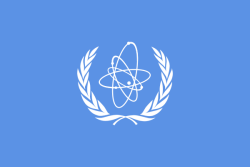

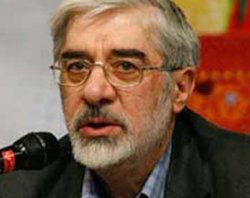
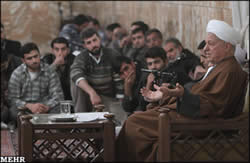
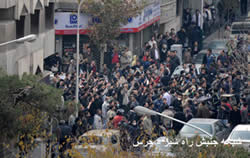

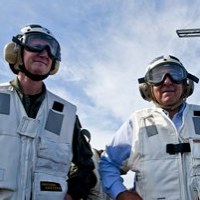

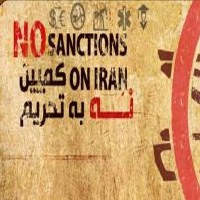
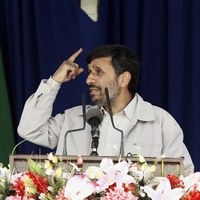




RT @CrethiPlethi: Iran's political crisis continues http://bit.ly/5alOeH #iran #israel
RT @CrethiPlethi: Iran's political crisis continues http://bit.ly/5alOeH #iran #israel
RT @edhyperlinks: RT @CrethiPlethi: Iran's political crisis continues http://bit.ly/5alOeH #iran #israel
RT @edhyperlinks: RT @CrethiPlethi: Iran's political crisis continues http://bit.ly/5alOeH #iran #israel
[…] is essentially forcing Khamenei to own the very mess that he created. This was just the case when he stated back in December and again earlier this month that the Supreme Leader is “the only one” […]